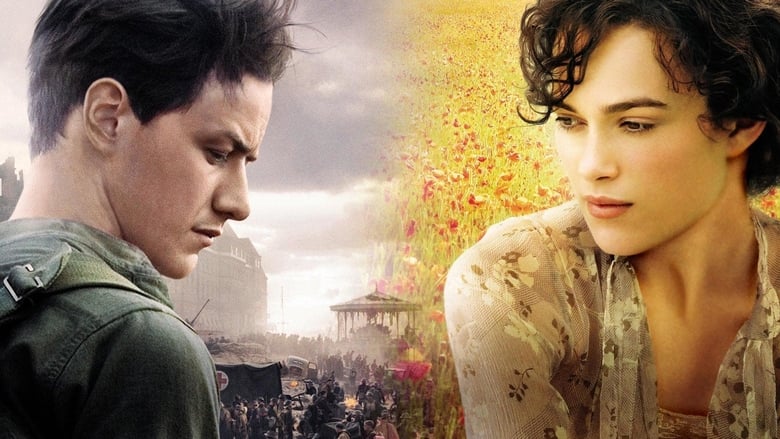← Back to Reviews

in
Atonement (Joe Wright, 2007)

Ian McEwan's novel is brought to the screen by Joe Wright, using much of the same muscular style he displayed in the recent Pride & Prejudice. The camera is often moving furiously and following its characters wherever they go. Wright is equally adept at staging quiet, intimate exchanges and enormously-complex shots involving numerous characters. Atonement is a good film, and it tries to do something few films attempt; it wants to tell a story of a doomed romance through different perspectives, ultimately challenging the viewer to question whether what they are seeing is true or not. Of course, films aren't "true" and never will be, but this one attempts to intermingle literature, movies, and history, all at the service of telling a story about what one highly-creative character believes she sees, the horrible repercussions on her loved ones due to her acts and how she attempts to atone for them.
Although the film is beautifully shot, has a wonderful musical score and sound design, and is well-acted, I wasn't as emotionally-involved in what I was watching as I felt I should have been. The movie is clever, but part of that cleverness involves turning who you believe are the lead characters into supporting ones. Although I was never bored, it was only at the end when the last of the film's twists are revealed that I came close to being moved. I certainly recommend the movie, and I've come across many viewers who believe it to be one of the best they've ever seen. Although it doesn't exactly cover the same ground, I prefer Karel Reisz's and Harold Pinter's version of John Fowles' The French Lieutenant's Woman as a story about perspectives and expectations, but you know me; I'm different... and old.
P.S. Some people obviously prefer No Country For Old Men for a rumination on similar themes.

Ian McEwan's novel is brought to the screen by Joe Wright, using much of the same muscular style he displayed in the recent Pride & Prejudice. The camera is often moving furiously and following its characters wherever they go. Wright is equally adept at staging quiet, intimate exchanges and enormously-complex shots involving numerous characters. Atonement is a good film, and it tries to do something few films attempt; it wants to tell a story of a doomed romance through different perspectives, ultimately challenging the viewer to question whether what they are seeing is true or not. Of course, films aren't "true" and never will be, but this one attempts to intermingle literature, movies, and history, all at the service of telling a story about what one highly-creative character believes she sees, the horrible repercussions on her loved ones due to her acts and how she attempts to atone for them.
Although the film is beautifully shot, has a wonderful musical score and sound design, and is well-acted, I wasn't as emotionally-involved in what I was watching as I felt I should have been. The movie is clever, but part of that cleverness involves turning who you believe are the lead characters into supporting ones. Although I was never bored, it was only at the end when the last of the film's twists are revealed that I came close to being moved. I certainly recommend the movie, and I've come across many viewers who believe it to be one of the best they've ever seen. Although it doesn't exactly cover the same ground, I prefer Karel Reisz's and Harold Pinter's version of John Fowles' The French Lieutenant's Woman as a story about perspectives and expectations, but you know me; I'm different... and old.
P.S. Some people obviously prefer No Country For Old Men for a rumination on similar themes.
